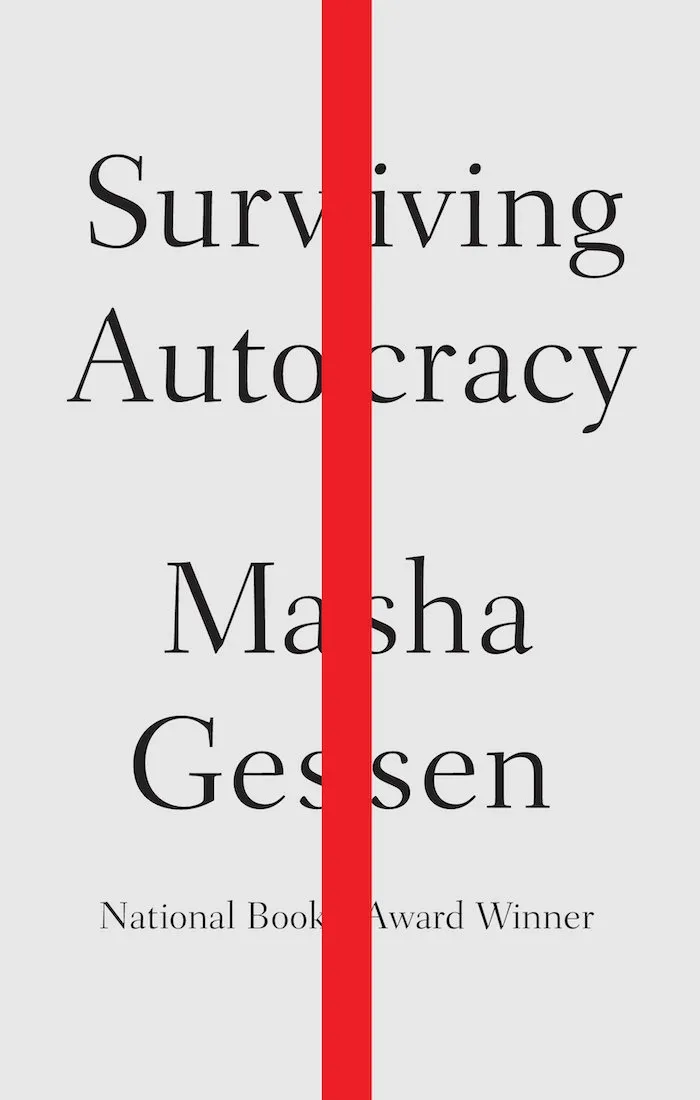
Brilliant author, writer, and modern historian Masha Gessen has just released a new book, Surviving Autocracy. I laud and have reviewed one of her prior books, The Future Is History: How Totalitarianism Reclaimed Russia. The following quote is from the start of her new book.
Trumpian news has a way of being shocking without being surprising. Every one of the events of that week was, in itself, staggering: an assault on the senses and the mental faculties. Together, they were just more of the same. Trump had beaten the government, the media, and the very concept of politics into a state beyond recognition. In part by habit and in part out of a sense of necessity, we continued to report the news and consume the news—this presidency produced more headlines per unit of time than any other—but at the end of each of his thousand days of presidency we seemed hardly closer to understanding what was happening to us.
And even when we could find the words to describe the exceptional, barely imaginable nature of Trumpian stories, that approach could not scale. How could we talk about a series of nearly inconceivable events that had become routine? How do we describe the confrontation of existing government institutions with a presidential apparatus that wants to destroy them?
I found some possible answers in the work of Hungarian sociologist Bálint Magyar. In struggling to define and describe what had happened in his country, Magyar had realized that the language of both the media and the academy was not up to the task. After the Eastern Bloc collapsed in 1989, both local and Western commentators adopted the language of liberal democracy to describe what was happening in the region. They talked about elections and legitimacy, rule of law and public opinion. Their language reflected their assumptions and their limitations: they assumed that their countries would become liberal democracies—this seemed the inevitable outcome of the Cold War; and they had no other language at their disposal anyway.
But if we use the wrong language, we cannot describe what we are seeing. If we use the language developed for describing fish, we cannot very well describe an elephant: words like “gills,” “scales,” and “fins” will not get us very far. When some of the post-Soviet societies developed in unexpected ways, language impaired our ability to understand the process. We talked about whether they had a free press, for example, or free and fair elections.
But noting that they did not, as Magyar has said, is akin to saying that the elephant cannot swim or fly: it doesn’t tell us much about what the elephant is. Now the same thing was happening in the United States; we were using the language of political disagreement, judicial procedure, or partisan discussion to describe something that was crushing the system that such terminology was invented to describe.
Magyar spent about a decade devising a new model, and a new language, to describe what was happening in his country. He coined the term “mafia state,” and described it as a specific, clan-like system in which one man distributes money and power to all other members. He then developed the concept of autocratic transformation, which proceeds in three stages: autocratic attempt, autocratic breakthrough, and autocratic consolidation.
It occurred to me that these were words that American culture could now borrow, in an appropriate symbolic reversal of 1989: these terms appear to describe our reality better than any words in the standard American political lexicon. Magyar had analyzed the signs and circumstances of this process in post-Communist countries and proposed a detailed taxonomy. But how it might happen in the United States was uncharted territory.
Posted from my blog with SteemPress : https://niklasblog.com/?p=24863